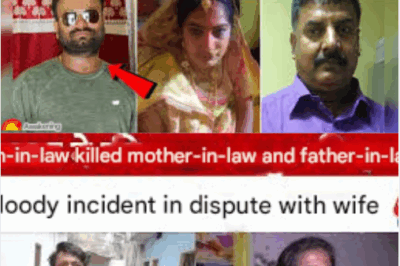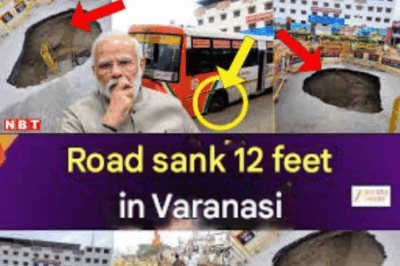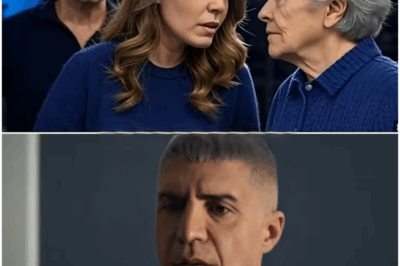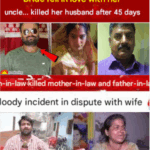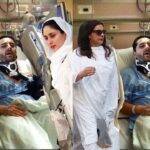Why Shefali could never become a mother, big revelation! Why Shefali Jariwala Could Never Become a Mother.
.
.
.
Why Shefali Jariwala Could Never Become a Mother: The Untold Story Behind the “Kanta Laga” Star’s Unfulfilled Dream
 The sudden demise of Shefali Jariwala, the iconic “Kanta Laga” girl, has left fans and the entertainment industry in shock. As the initial wave of grief passes, deeper layers of her personal life are being uncovered—some heartbreaking, some inspiring, and some that reveal the silent battles she fought away from the limelight. Among the many questions now surfacing is one that had lingered quietly for years: Why did Shefali Jariwala never become a mother?
The sudden demise of Shefali Jariwala, the iconic “Kanta Laga” girl, has left fans and the entertainment industry in shock. As the initial wave of grief passes, deeper layers of her personal life are being uncovered—some heartbreaking, some inspiring, and some that reveal the silent battles she fought away from the limelight. Among the many questions now surfacing is one that had lingered quietly for years: Why did Shefali Jariwala never become a mother?
A Rising Star With a Dream
Born on December 15, 1982, in Gujarat, Shefali was drawn to dance and acting from an early age. While pursuing her studies, she trained in dance and began modeling in college. Her big break came in 2002 when she featured in the remix music video “Kanta Laga.” The song’s phenomenal success catapulted her to instant fame. Shefali’s boldness, her dance moves, and her screen presence made her a household name overnight.
Despite this meteoric rise, Bollywood did not offer her the kind of opportunities many expected. She appeared in a few more music videos but never landed significant roles in films. Yet, she remained a beloved figure, known for her infectious energy and resilience.
The First Turning Point: A Marriage That Left Scars
In 2004, Shefali married music director Harmeet Singh of the Meet Bros duo. From the outside, their relationship seemed idyllic, but behind closed doors, Shefali endured physical and emotional abuse. In several interviews, she later spoke about the trauma she faced during this marriage—alleging domestic violence and mental harassment.
The marriage ended in 2009 after a painful legal battle. The ordeal left Shefali shattered, battling depression and a decline in her physical health. It was during this period that another harsh reality surfaced: Shefali was diagnosed with epilepsy, a neurological disorder characterized by sudden seizures due to abnormal brain activity.
Living With Epilepsy: The Medical Barrier to Motherhood
Shefali’s epilepsy was not new—it had been present since childhood but went undiagnosed for years. The stress and trauma of her marriage, coupled with depression, exacerbated her condition. She now required regular, potent medication to manage her seizures. These anti-epileptic drugs, while life-saving, come with a range of side effects, especially for women.
One of the most significant side effects of these medications is their impact on hormonal balance and fertility. Some anti-epileptic drugs can reduce the chances of conception or pose risks to fetal development if a woman becomes pregnant. For Shefali, this meant that the dream of motherhood was suddenly fraught with medical risks and uncertainty.
Her doctors advised that if she wished to plan a pregnancy, she would need to either stop or change her medication—a step that could endanger her own health. The fear of a seizure during pregnancy, the potential harm to a baby, and the uncertainty of her own well-being made the prospect of motherhood daunting.
The Emotional Toll: Fear, Hesitation, and Delayed Decisions
Shefali’s longing to become a mother never faded. Close friends and family have confirmed that she always wanted children. Yet, the combination of her medical condition, the trauma of her first marriage, and the emotional scars of abuse made her hesitant. She feared for her own health and for the well-being of any child she might bring into the world.

In interviews, Shefali admitted to repeatedly postponing the decision to have a child. The shadow of her past, combined with the unpredictability of her health, left her mentally exhausted and unsure. She questioned whether she would be able to provide a safe, loving environment for a child, or whether her own struggles would burden them.
A Second Chance at Love: Finding Support in Parag Tyagi
In 2011, Shefali’s life took a positive turn when she met television actor Parag Tyagi. Their friendship blossomed into love, and in 2014, they married. Parag was the opposite of her first husband—calm, supportive, and understanding. He knew about Shefali’s health and her painful past, yet embraced her completely.
With Parag by her side, Shefali began to heal emotionally. She returned to work, participating in television shows like “Nach Baliye 9,” where the couple’s chemistry was widely appreciated. But behind the scenes, the struggle to become a mother continued.
The Adoption Journey: Hope and Heartbreak
Recognizing the risks associated with pregnancy, Shefali began to consider adoption. She spoke openly in the media about her desire to give a home to a child who needed love. This was not a new dream—Shefali had always wanted to adopt, feeling a special empathy for children without families.
Parag supported her wholeheartedly, and together they began the adoption process. However, the path was anything but smooth. In India, adoption is a lengthy and bureaucratic process, often taking four to five years and involving extensive paperwork, background checks, and family interviews.
To make matters more complicated, Shefali’s family—especially her father—was initially hesitant about the idea. Shefali herself admitted that she was not always mentally prepared, fearing that she might not be able to give a child the love and security they deserved, especially given her own health uncertainties.
The Pandemic and Renewed Fears
When the COVID-19 pandemic struck, it brought the world to a standstill. For Shefali, the lockdowns not only halted the adoption process but also deepened her sense of isolation and loss. She lost several close friends and relatives during this time, which intensified her fears about the future.
In candid interviews, Shefali confessed that the pandemic made her question whether she would be able to care for a child if something happened to her. The fear of leaving a child orphaned, combined with her ongoing health issues, led her to pause the adoption process and focus on her career and personal well-being.
The Never-Ending Struggle: Health, Hope, and Heartache
As the world emerged from the pandemic, Shefali tried to revive her dreams. She remained active professionally, appeared in music videos, and engaged with fans on social media. The desire for motherhood never truly faded; friends recall how her eyes would light up at the sight of children.
Shefali and Parag even considered restarting the adoption process, but once again, obstacles arose. The Indian adoption system requires not only a stable family environment but also a thorough assessment of the parents’ health. By this time, years of medication had taken a toll on Shefali’s body. She suffered from chronic fatigue, sudden drops in blood pressure, and was undergoing anti-aging treatments that, while common among celebrities, can have unpredictable effects if not medically supervised.
The Final Days: A Tragic End
On June 27, 2025, Shefali observed a fast and received an intravenous vitamin drip. Tragically, her blood pressure dropped sharply, leading to cardiac arrest. She was rushed to the hospital, but it was too late. Her sudden passing stunned the entertainment industry and her legion of fans.
In her final social media post, Shefali appeared radiant and happy—masking the physical and emotional pain she had long endured. Her husband, Parag, spoke to the media with tears in his eyes, describing Shefali as a strong woman who always put others before herself.
The Unfulfilled Dream and Its Lessons
After Shefali’s death, the question of her unfulfilled dream of motherhood resurfaced. Old interviews and statements circulated online, with fans expressing sorrow that she never got the child she so deeply desired.
Shefali’s story is a poignant reminder that behind every smile, there can be hidden struggles. For all her fame and public persona, she battled illnesses, trauma, and societal expectations in silence. Her courage in speaking about adoption, mental health, and her medical challenges inspired many, even as she faced setbacks at every turn.
Conclusion: More Than the “Kanta Laga” Girl
Shefali Jariwala will always be remembered as the vivacious “Kanta Laga” girl who captivated a nation. But her real legacy lies in her resilience, her honesty about her struggles, and her willingness to dream of motherhood despite overwhelming odds.
Her life teaches us that not every dream comes true, but the pursuit itself is a testament to hope and strength. In her silent battle to become a mother, Shefali showed grace, empathy, and an indomitable spirit. She leaves behind not just memories, but also important conversations about women’s health, adoption, and the unseen burdens carried by those who live in the public eye.
play video:
News
Murder of Husband 1 Month After Marriage in Bihar, Planned in Wedding Mandap, Had Affair with 60-Year-Old Uncle
Murder of Husband 1 Month After Marriage in Bihar, Planned in Wedding Mandap, Had Affair with 60-Year-Old Uncle In a…
Pune Rape Case Update: Online shoppers beware!
Pune Rape Case Update: Online shoppers beware! The Dark Side of Convenience: Pune Delivery Boy Assault Case Exposes Vulnerabilities in…
Varanasi Road Collapses: 20-foot road collapses on NH-56 in Kashi, Congress slams PM Modi
Varanasi Road Collapses: 20-foot road collapses on NH-56 in Kashi, Congress slams PM Modi Beneath the saffron-hued ghats and the…
SpiceJet Flight Window Incident: The window broke mid-air, passengers scared
SpiceJet Flight Window Incident: The window broke mid-air, passengers scared The skies above India’s western coast became the stage for…
Özcan Deniz: ‘Annemle barışmak ve sormak için elimden geleni yapıyorum’
Özcan Deniz: ‘Annemle barışmak ve sormak için elimden geleni yapıyorum’. . . . Özcan Deniz’in Aile Krizi: “Annemle Barışmak ve…
Burak Özçivit’in ailesi Burak’ın sevgilisini evden kovdu: Burak’tan uzak durun!
Burak Özçivit’in ailesi Burak’ın sevgilisini evden kovdu: Burak’tan uzak durun! . . . Burak Özçivit’in Ailesinde Büyük Kriz: Sevgilisi Evden…
End of content
No more pages to load

